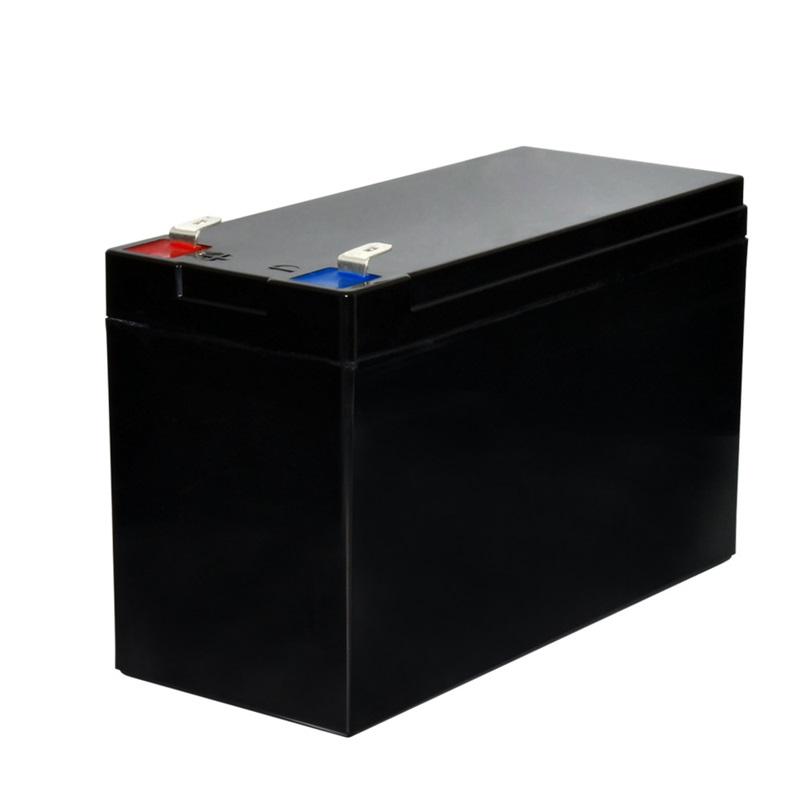
When it comes to choosing the right battery for your RV, solar setup, or other outdoor activities, one of the most common questions is whether to go for a 6V or 12V battery. Both options have their benefits and potential drawbacks, and the choice depends on your specific requirements. In this article, we'll break down the differences between 6V and 12V batteries and help you decide which voltage is best suited to your needs.
Before diving into the pros and cons, let's first understand the fundamental difference between 6V and 12V batteries. The voltage of a battery determines the amount of electrical power it can deliver to the system. A 12V battery, as the name suggests, provides 12 volts of power, while a 6V battery provides only 6 volts.
However, it's important to note that the voltage is not the only factor affecting battery performance. The capacity of a battery, measured in amp-hours (Ah), is equally important. A higher voltage doesn't necessarily mean more power; it depends on the battery's overall capacity and your power requirements.
Pros:
1. Better Efficiency for High Power Needs: 6V batteries are generally used in pairs or series to create a 12V system. The advantage of this setup is that each individual battery operates at a lower voltage, which can provide better efficiency and performance for high-power needs like RVs, solar power systems, and golf carts.
2. Longer Lifespan: 6V batteries tend to have a longer lifespan compared to 12V batteries, especially when used in a series configuration. Their lower voltage allows them to work less hard, leading to less wear and tear over time.
3. Greater Depth of Discharge (DoD): 6V batteries can typically be discharged deeper than 12V batteries without causing damage. This makes them more suitable for systems that require a greater energy draw over time.
4. More Cost-Effective for Larger Systems: When you need more energy storage, using 6V batteries in series is often a more cost-effective solution. This is especially true for large-scale off-grid solar systems or RV setups.
Cons:
1. Requires More Wiring: Because 6V batteries must be connected in series to achieve a 12V system, you will need more wiring and a more complex setup. This can make installation more difficult, especially for beginners.
2. Requires Regular Maintenance: If you're using flooded lead-acid 6V batteries, they require more maintenance compared to sealed 12V batteries, including checking water levels and cleaning terminals.
Pros:
1. Simpler Setup: 12V batteries are ideal for simpler systems since they provide the right voltage for most RVs, boats, and off-grid solar systems without needing to connect batteries in series. This makes them easier to install and maintain.
2. Widely Available: 12V batteries are the standard in many industries, so they are widely available in different types (flooded, AGM, Gel, etc.), and they are compatible with a variety of chargers and systems.
3. Lower Maintenance: Sealed 12V batteries (like AGM or Gel batteries) require little to no maintenance. This can be a major advantage for those who don't want the hassle of checking water levels or dealing with the corrosion of terminals.
4. More Power in a Single Unit: A 12V battery provides more power in a single unit than a 6V battery, making it an ideal choice for users who need a quick, straightforward solution without building a complex battery bank.
Cons:
1. Shorter Lifespan: While 12V batteries are easy to use, they tend to have a shorter lifespan than 6V batteries, especially if they are regularly discharged to lower levels. They are less efficient at handling deep discharges.
2. Lower Depth of Discharge: 12V batteries generally have a lower depth of discharge than 6V batteries, which means you may need to replace them sooner if you frequently use a significant portion of the battery's capacity.
3. Less Suitable for High-Power Systems: If you're setting up a large solar or RV system that requires a lot of energy storage, you may need more 12V batteries to meet your needs. This can lead to higher costs and more space requirements compared to using 6V batteries.
The decision between a 6V and a 12V battery ultimately depends on your power requirements, system complexity, and how much maintenance you're willing to handle. Here's a quick guide to help you make the right choice:
1. Choose a 6V Battery if:
- You need more energy storage for larger systems (e.g., large RVs, off-grid solar setups, golf carts).
- You want a longer-lasting battery with a greater depth of discharge.
- You're okay with the complexity of wiring batteries in series and doing regular maintenance.
2. Choose a 12V Battery if:
- You need a simpler, more straightforward solution for smaller systems.
- You're looking for a low-maintenance, easy-to-install battery that doesn't require connecting multiple batteries.
- You don't need to discharge your battery deeply or require a large energy capacity.
Both 6V and 12V batteries have their place, and the best option depends on your specific needs. If you require higher efficiency, longer lifespan, and can handle more complex setups, 6V batteries are a great choice. However, for simplicity, ease of use, and lower maintenance, a 12V battery may be the better option.
Remember, choosing the right battery voltage is just one piece of the puzzle—consider your energy needs, the climate where you'll be using the system, and your willingness to perform maintenance before making your final decision. With the right battery, you'll ensure reliable power for your RV, solar setup, or outdoor activities for years to come.
Next:Comprehensive Guide on 50Ah LiFePO4 Battery
Previous:CATL Unveils Bedrock Chassis Capable of Withstanding 120 km/h Impact Without Fire or Explosion
Contact Person: Miss. Elsa Liu
| WhatsApp : | +8617763274209 |
|---|---|
| Skype : | +8617763274209 |
| WeChat : | 17763274209 |
| Email : | Elsa@lifepo4-battery.com |